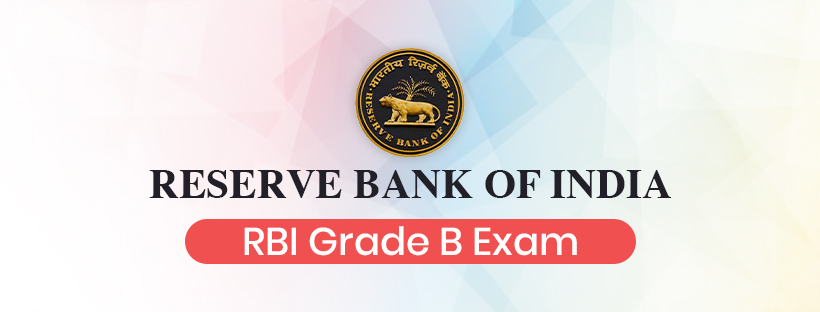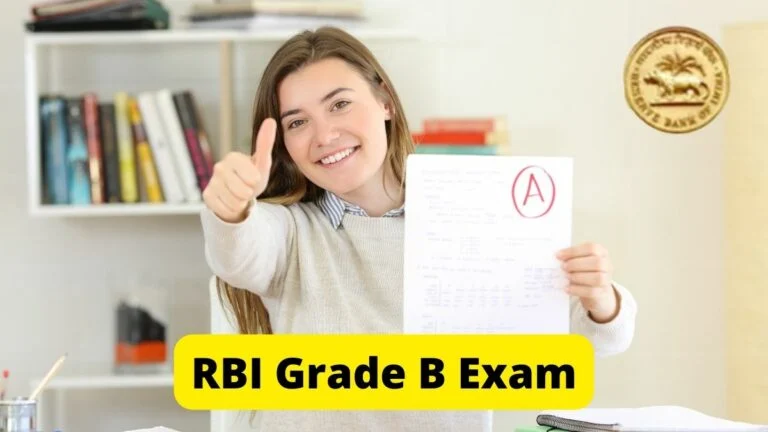

Introduction:
The Reserve Bank of India (RBI) Grade B examination is a gateway for finance and banking aspirants to enter one of the most esteemed institutions in India. The exam rigorously tests candidates’ knowledge and skills across various domains through its structured Preliminary and Main examinations. It meticulously evaluates one’s understanding of General Awareness, Quantitative Aptitude, Reasoning Ability, and English in the Preliminary stage, followed by a deeper assessment of Economic and Social Issues, Finance and Management, and English writing skills in the Main examination. This comprehensive syllabus is designed to identify individuals capable of handling the responsibilities and challenges in the banking sector efficiently.
Eligibility Criteria
Before we delve into the syllabus and patterns, let’s first understand the eligibility criteria for the RBI Grade B examination:
Candidates must be between 21 and 30 years of age (age relaxation is applicable for reserved categories).
They should have a minimum of 60% marks (50% for reserved categories) in their graduation, post-graduation, or equivalent qualification.
For specific educational requirements and other eligibility criteria, candidates are advised to refer to the official notification issued by the RBI.
Exam Pattern
The RBI Grade B examination consists of three phases:
Preliminary Examination: This phase is an objective-type test consisting of multiple-choice questions (MCQs). It assesses the candidate’s proficiency in subjects like General Awareness, English Language, Quantitative Aptitude, and Reasoning Ability.
Main Examination: The main examination includes both objective and descriptive questions. It covers subjects like Economic and Social Issues, Finance and Management, and English (writing skills).
Interview: Candidates who qualify the main examination are called for the interview round. It evaluates their communication skills, leadership qualities, and knowledge of the banking sector.
SYLLABUS
Preliminary Examination
- General Awareness
Current Affairs: Knowledge of significant national and international events, sports, new appointments, awards, and honors.
Banking Awareness: Basics of the banking industry, monetary policies, types of banks, functions of RBI, and other financial institutions.
Static GK: Important facts about Indian history, geography, the Indian constitution, basic economic terms, and principles.
Economic and Social Issues: Understanding of economic terms, government schemes, and social issues affecting India and the world.
- English Language
Reading Comprehension: Ability to understand and derive conclusions from a passage.
Grammar: Usage of standard English grammar, including parts of speech, tenses, voice, narration, etc.
Vocabulary: Knowledge of synonyms, antonyms, idioms, and phrases.
Verbal Ability: Questions on para jumbles, sentence correction/improvement, and fill in the blanks.
- Quantitative Aptitude
Number System: Basics of numbers and sequence.
Simplification: BODMAS, fraction, decimal, and ratio simplification.
Average, Ratio and Proportion: Basic mathematical operations and their applications.
Data Interpretation: Analysis of data given in graphs, charts, and tables.
Time and Work, Speed, Distance and Time: Problems based on basic formulas and concepts.
- Reasoning Ability
Coding-Decoding: Logic-based questions to decode the pattern.
Puzzles: Various types of puzzles including seating arrangements, scheduling, etc.
Seating Arrangement: Linear, circular, square table arrangements.
Syllogism: Deductive reasoning to derive conclusions from statements.
Blood Relations: Understanding familial relationships to answer questions.
Inequality: Mathematical inequalities and their applications.
Direction Sense: Problems based on directions and distances.
Main Examination
Paper I:
Economic and Social Issues
Growth and Development:
Measurement of growth, development indicators, factors affecting development.
Poverty Alleviation and Social Justice: Government schemes, policies for poverty reduction, and social equity.
Globalization: Effects on developing countries, India’s place in the global economy.
Sustainable Development: Environmental sustainability, renewable energy, green initiatives.
Demographic Trends: Population studies, migration, urbanization, and their implications.
Paper II:
Finance and Management
Financial System:
Overview of the financial system in India, role of banks and financial institutions.
Financial Markets: Money market, capital market, forex market, and their functionalities.
Risk Management: Types of risks, risk management in banking sector.
Corporate Governance: Principles, corporate governance in Indian banking sector, regulatory aspects.
Human Resource Development: HRD practices, motivation, incentives, and performance evaluation.
Paper III:
English (Writing Skills)
Essay Writing:
Writing essays on banking, economic, and social issues.
Precis Writing: Summarizing a given passage.
Comprehension: Answering questions based on a given passage.
Business Correspondence: Drafting official letters, reports, and memos.
Conclusion:
Preparing for the RBI Grade B examination requires a strategic approach, focusing on both the breadth and depth of the syllabus outlined. Candidates must not only stay updated with current affairs and banking awareness but also sharpen their quantitative, reasoning, and English language skills. Furthermore, an in-depth understanding of economic and social issues, finance, and management principles is crucial for success in the Main examination. With diligent preparation and a clear understanding of the detailed syllabus, aspirants can significantly enhance their chances of securing a position in India’s central banking institution, marking the beginning of a prestigious and fulfilling career.
For the detailed Syllabus; CLICK HERE
For the Other exams Information ; CLICK HERE
